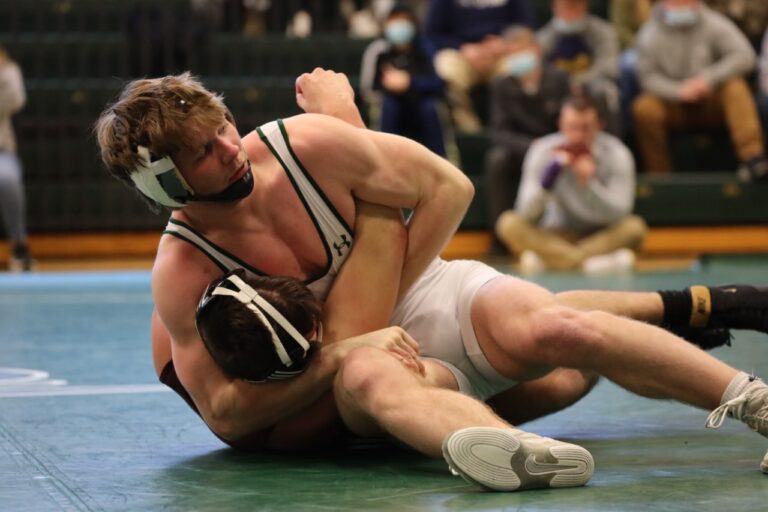Men’s hockey fights mental health stigma

The stigma has been haunting male athletes for decades now and it has just started to become a much more normalized issue. It sticks to male athletes because men are taught not to share their emotions and told to “man up” even if they aren’t okay.
This stigma is mental health, and many professional athletes have opened up about it recently to the public, hoping their stories can affect young men and assure them that not being okay is okay.
“There are guys in every sport coming out and talking about it or taking time away, which is their way of talking about it and showing people that they need their own type of help. I certainly think it’s getting easier to talk about, but I think it’s still a long way from how it should be,” said Castleton men’s ice hockey Head Coach Kyle Richards.
Michael Phelps. Robin Lehner. Demar Derozen. Scott Darling. Kevin Love. Brandon Marshall. Mental health is an issue all these athletes have faced head on, but they are only some of the ones brave enough to come out and openly talk about it to the media.
The stigma that surrounds males is that they should hold their feelings inside and breaking that stigma happens one step at a time for male athletes all over the globe.
With the stigma being more openly talked about in the media in today’s world, it should be easier for athletes to open up about mental health. But they say it isn’t.
“When it comes to mental health issues, the biggest thing is to embrace and accept it and understand why in order to attack it,” said Philadelphia Eagles offensive lineman, Brandon Brooks, in an interview with the Philly Voice in 2019.
This isn’t always the case for every athlete. The stigma has painted a picture for these athletes for years that they can’t have real emotions outside of the game. This false narrative has caused some athletes to crumble from it.
Athletes would instead turn to other things to suppress their feelings. NHL goalie Scott Darling would turn to alcohol to help ease his thoughts. The stigma makes male athletes afraid to get the professional help they need to cope.
An estimated 68% of elite athletes experience depressive symptoms, and in U.S. college athletics, 21.4% of athletes self-reported clinical symptoms of depression, according to a study and subsequent article titled, “Men, Mental Health and Elite Sports,” from doctors Gary Souter, Robin Lewis, and Laura Serrant.
“I think men are encouraged to hide their emotions and not speak up about their mental health regarding anxiety or depression. There is a stigma for men to “not act like a girl” this makes it hard for men to express their mental health. There need to be change and a safe space for men to express their mental health issues,” said Castleton women’s hockey player Nancy Benedict.
Step by step, male athletes will continue to challenge the stigma surrounding mental health.
The Castleton men’s ice hockey is hosting a Breaking the Ice on Mental Health game on Feb. 11 for the cause.
“It’s a great opportunity for us to bring awareness to a delicate situation for male athletes around the world,” said Castleton men’s hockey player, Zach Papapetros.
The game against UMass Boston will be the first Mental Health game in Castleton men’s hockey program history and mark a step in the right direction for male athletes.
“Our goal is to try and slowly push the needle. It’s cliché but if we can help one person understand it’s alright to come out and talk about their feelings then we are doing our job,” said Richards.








